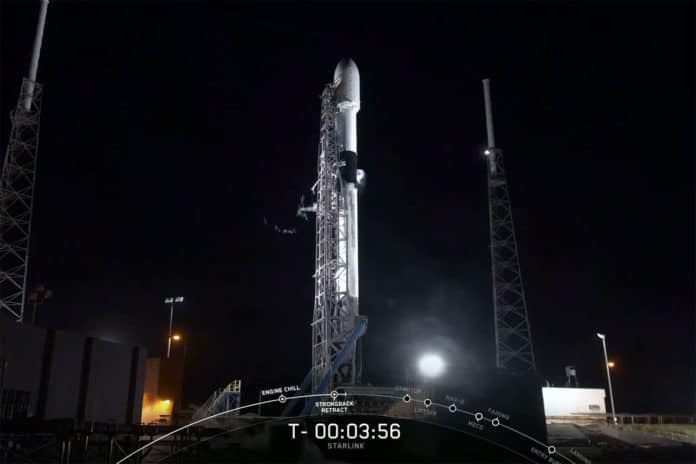Falcon 9, a two-stage rocket is designed and manufactured by SpaceX for the reliable and safe transport of satellites and the Dragon spacecraft into orbit.
On Thursday, May 23 at 10:30 p.m. EDT SpaceX launched 60 Starlink satellites from Space Launch Complex 40 (SLC-40) at Cape Canaveral Air Force Station, Florida. About one hour and two minutes after liftoff, the Starlink satellites start deploying at an altitude of 440km above the Earth. They will then use onboard propulsion to reach an operational altitude of 550km.
And just over an hour after launch, SpaceX successfully deployed the 60 flat-packed Starlink satellites.
Starlink satellites:
SpaceX’s Starlink is a next-generation satellite network capable of connecting the globe, especially reaching those who are not yet connected (like rural areas). And that too with reliable and affordable broadband internet services.
Each Starlink satellite weighs approximately 227kg and has a flat-panel design that features multiple high-throughput antennas and a single solar array. To adjust position on orbit, maintain intended altitude, and deorbit, Starlink satellites feature Hall thrusters powered by Krypton. In addition, each spacecraft is equipped with a star tracker navigation system that allows SpaceX to point the satellites with precision.
Starlink Mission update:
Together, the five dozen spacecraft weighs about 18.5 tons (16.8 metric tons), which is more than any other payload that SpaceX has ever launched, said company founder and CEO Elon Musk.
Falcon 9’s first stage has already landed safely on a waiting drone ship, this was its third flight. The constellation needs about 400 satellites to provide “minor” coverage and 800 or so for “moderate” coverage, Musk said. And if things go really well, the network could eventually be about 12,000 strong.
By the mid-2020s, these units in the orbit will provide internet connections capable of up to 1Gbps even in rural areas. With six more launches, for a total of about 400 satellites, SpaceX founder Elon Musk said the Starlink constellation will reach that target.
